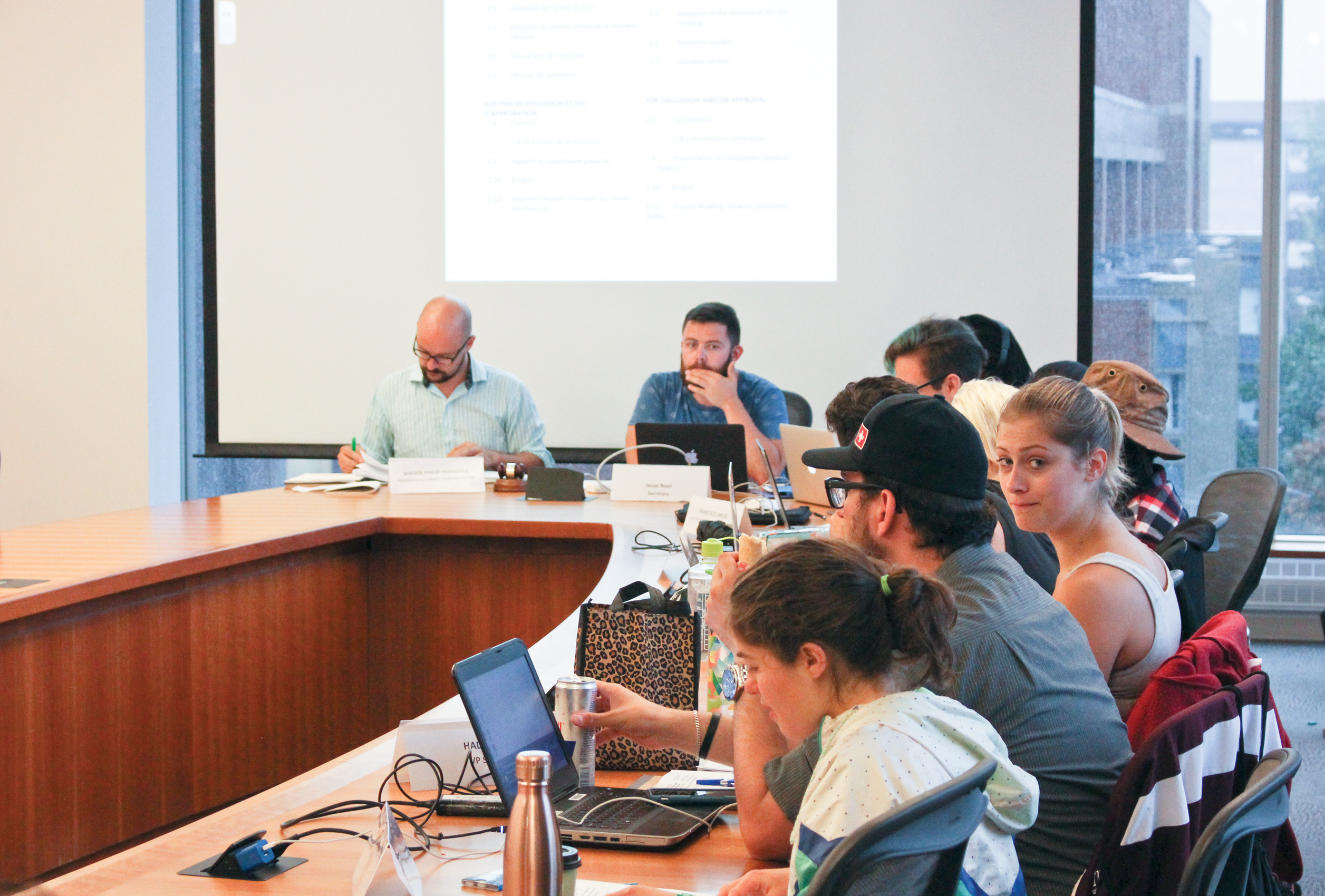Poorly defined rules make it hard to enact real change
When you vote in the Student Federation of the University of Ottawa (SFUO) elections, you’re voting for someone to represent you and serve the best interests of students, right? Well, not quite.
The SFUO’s Board of Administration (BOA)—made up of students elected to represent their respective faculties—is primarily bound to preserve the financial and corporate structures of the federation before serving the needs of students. In fact, newly elected BOA members will have to take a special training course on their “fiduciary duty” to the SFUO (section 3.1.13.1).
In simpler terms, if BOA members vote against these financial interests, they are liable to legal action brought against them by the SFUO’s lawyers. This is one of the reasons why the SFUO has tended to resist organizational change and is at times disconnected from the student population—our representatives are forced to serve money, and not people.
Why is this bad? Well, let’s say one day our student federation is not working and we need to significantly change its organizational structure. Even if every student wanted this change, we would not be able to make it happen because the BOA has the fiduciary duty to preserve the current federation. In this scenario corporatism trumps democracy, as any motion to make such changes would simply be called “out of order.”
This isn’t just theoretical. There have been numerous instances throughout our federation’s history where fiduciary duty was called upon to deny students their rights.
In the mid-1990s when the Science Students’ Association and the Engineering Students’ Society were attempting to defederate from the student executive, SFUO lawyers told the BOA representatives that they weren’t allowed to vote for fed bodies to defederate, as this would violate their fiduciary duty.*
In addition, immense power is put in the hands of unelected non-students like the executive coordinator and the SFUO’s lawyers, whose job it is to interpret when student representatives are breaking their fiduciary duty.
Additionally, this kind of responsibility is not defined in the SFUO constitution, which gives these unelected non-students the power to call any motion they don’t agree with a violation of this rule. As the vast majority of students can’t afford defense lawyers, we’re left unable to fight back. The SFUO also lacks independent checks and balances, like a student court—ours was abolished without a referendum by the BOA in 2011.
This corporate way of doing business has no place in student government, since it violates students’ fundamental rights and makes a mockery of what our student union truly should be: a democracy.
If fiduciary duty serves the requirement of some piece of corporate legislation, then a new type of organization should be created for student unions that respects the student voice. Fiduciary duty must be synonymous with the needs of students, and if there is ever a conflict between the two, the students should prevail.
The SFUO needs to put students first, not its own bureaucracy. Our representatives should be there to serve our interests, not the whims of unelected, behind-the-scenes actors who lack accountability. We need to take a stance against the corporatization of our student movement.
*Referenced in an Editor’s Note from the Jan. 11, 1996 edition of the Fulcrum (written by Brett Ballah).





